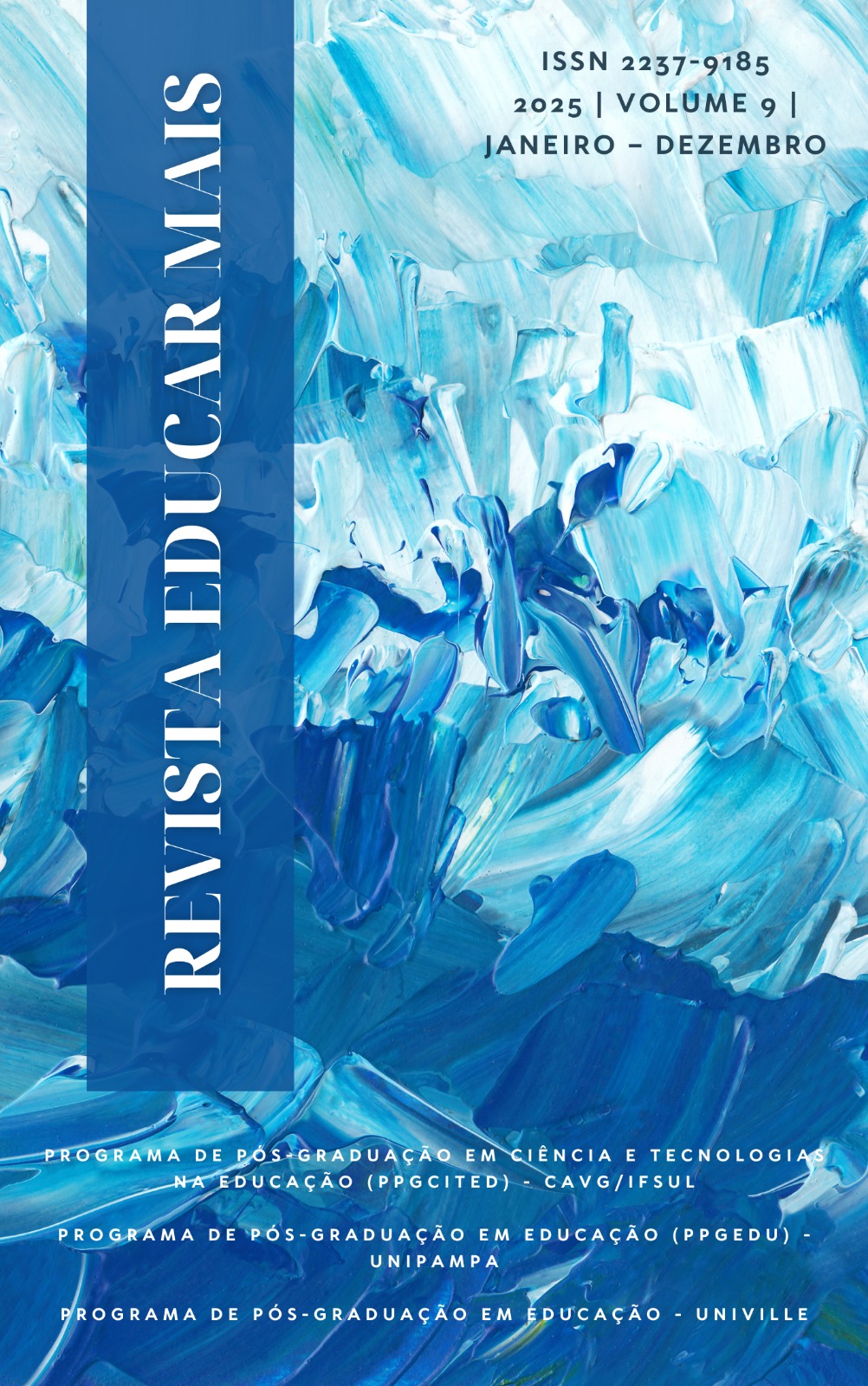Didactic Sequence to Enhance Learning in Process Control: An Experience Report in the Technical Course in Industrial Automation
DOI:
https://doi.org/10.15536/reducarmais.9.2025.4190Keywords:
Meaningful learning, Technical education, Computer simulationAbstract
This article presents an experience report on the design and implementation of a didactic sequence aimed at teaching PID controllers in the Process Control course of the Technical Program in Industrial Automation. The proposal, grounded in Ausubel's Theory of Meaningful Learning and active methodologies, uses the SciLab® software as a simulation tool to foster meaningful learning. The sequence was structured as a Potentially Meaningful Teaching Unit (UEPS), exploring students’ everyday situations, such as automotive speed control, to build connections with technical concepts. Qualitative data, collected through observations, student productions, and questionnaires, indicated signs of motivation, engagement, and learning. The results suggest the effectiveness of the approach in technical education and its potential for replication and enhancement in other educational settings.
Downloads
References
AUSUBEL, D. P. Aquisição e retenção de conhecimentos: uma perspectiva cognitiva. Lisboa: Plátano, 2000.
AUSUBEL, D. P. The psychology of meaningful verbal learning. New York: Grune & Stratton, 1963.
BACICH, L.; MORAN, J. M.; TREVISANI, F. Metodologias ativas para uma educação inovadora: uma abordagem teórico-prática. Porto Alegre: Penso, 2017.
BREGANON, E. R. et al. A importância das atividades práticas nos cursos de Engenharia e Tecnologia. Revista Ensino em Re-Vista, v. 28, n. 1, 2021.
CAMPBELL, S. L.; CHANCELIER, J. P.; NICOLET, J. Modeling and simulation in Scilab/Scicos. Springer Science & Business Media, 2006.
IF SUL-RIO-GRANDENSE. Matriz curricular do Curso Técnico em Automação Industrial – Câmpus Camaquã. Camaquã: IFSul, 2015.
MOREIRA, M. A. Aprendizagem significativa: da teoria à prática. 2. ed. Porto Alegre: EDIPUCRS, 2011.
MOREIRA, M. A. Aprendizagem significativa: um conceito subjacente. Caderno Brasileiro de Ensino de Física, v. 27, n. 2, p. 525-541, ago. 2010.
MOREIRA, M. A. Teoria da aprendizagem significativa: fundamentos e aplicações. São Paulo: Centauro, 2012.
MORAN, J. M. Metodologias ativas para uma educação inovadora. In: BACICH, L.; MORAN, J. M. Metodologias ativas para uma educação inovadora: uma abordagem teórico-prática. Porto Alegre: Penso, 2017.
SALES, P. A. O uso de automóveis no ensino de Física e Matemática. Revista Brasileira de Ensino de Ciências e Tecnologia, v. 4, n. 3, p. 78-95, 2011.
SMETANA, L. K.; BELL, R. L. Computer simulations to support science instruction and learning: A critical review of the literature. International Journal of Science Education, v. 34, n. 9, p. 1337-1370, 2012.
UFRGS. Laboratório de Automação e Controle - SCILAB. Disponível em: https://www.ufrgs.br/lac/scilab/. Acesso em: [data de acesso].
YIN, R. K. Pesquisa qualitativa do início ao fim. Porto Alegre: Penso, 2016.
Downloads
Published
How to Cite
Issue
Section
License
Copyright (c) 2025 Ricardo Prediger, Fernando Brod, Maria Isabel Moreira

This work is licensed under a Creative Commons Attribution-NonCommercial 4.0 International License.
DECLARATION OF RESPONSIBILITY: I hereby certify that I partially or fully participated in the conception of the work, that I did not hide any links or financial agreements between the authors and companies that may be interested in this article publication. I certify that the text is original and that the work, partially or fully, or any other work with a substantially similar content written by me, was not sent to any other journal and it will not be send while my submission is being considered by Revista Educar Mais, whether in printed or electronic format.
The author responsible for the submission represents all the authors of the manuscript and, when sending the article to the journal, guarantees s/he has obtained the permission to do so, as well as s/he guarantees the article does not infringe upon anyone’s copyright nor violate any proprietary rights. The journal is not responsible for the opinions expressed.
Revista Educar Mais is Open Access, does not charge any fees, whether for submission or article processing. The journal adopts Budapest Open Access Initiative (BOAI)’s definition, i.e., any users are permitted to read, download, copy, distribute, print, search and link to the full texts of these articles.
All the articles are published under the Creative Commons Atribuição-NãoComercial 4.0 Internacional license. The authors keep the copyright of their production. That way, they must be contacted directly if there is any interest in commercial use of their work.
















